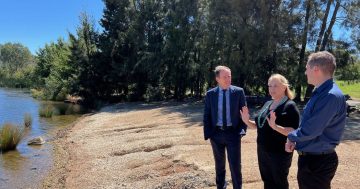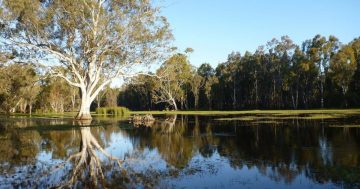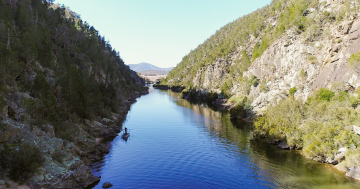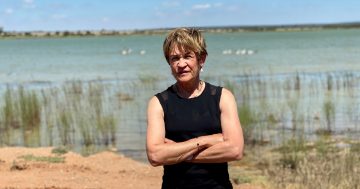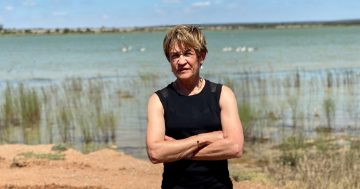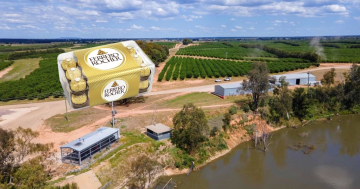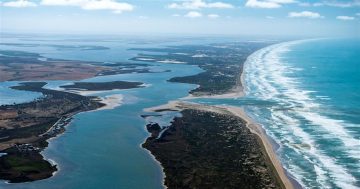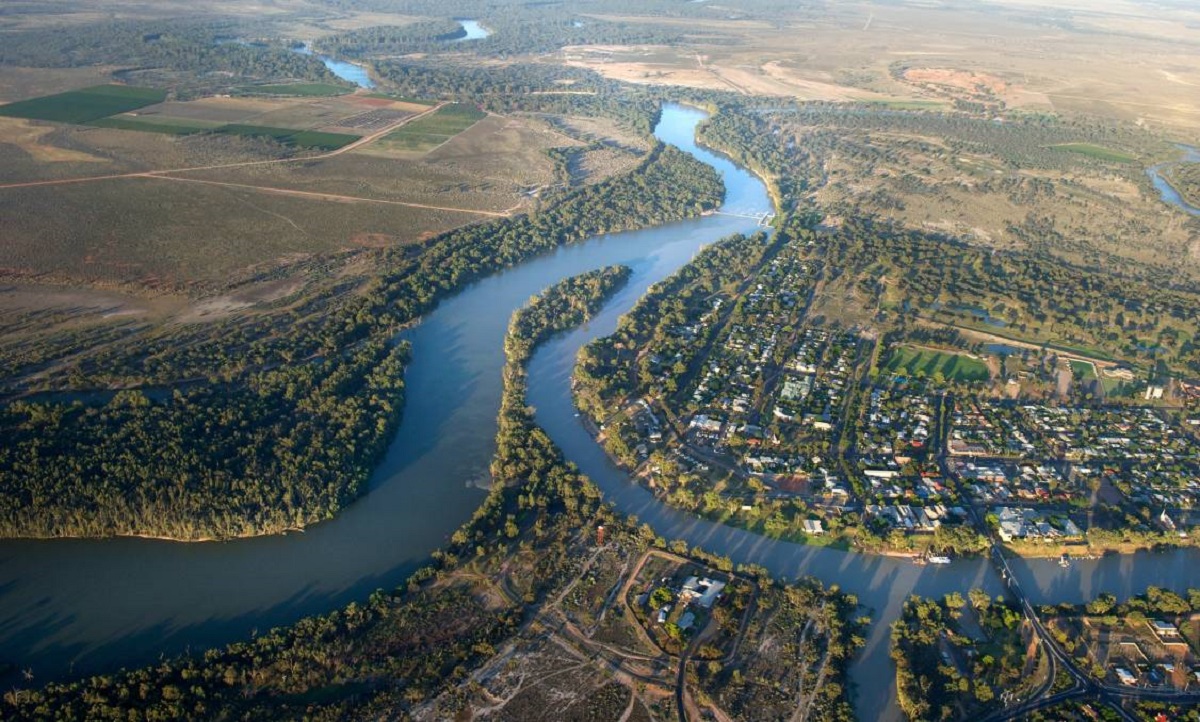
The confluence of the Darling (right) and Murray Rivers at Wentworth in NSW. Photo: Murray Darling Basin Plan.
Since the last review of the Murray Darlin Basin Plan in 2018, the Productivity Commission (APC) has reported that it will not be fully implemented on time or on budget. Despite some progress being made, Associate Commissioner Chris Guest says that basin governments “need to pull their weight” in their interim report.
There’s promise in a new agreement yet to be legislated, which could deliver more time, water supply measures and voluntary water purchases, but the report says it still won’t be enough to overcome the plan’s remaining issues of poor accountability and insufficient funds.
In 2014 the plan began its work on rejuvenating the Murray-Darling Basin for the benefit of the environment and future generations of the communities that depend on it.
The governments of Victoria, Queensland, South Australia, NSW and the ACT agreed to recover 2750 gigalitres (GL) of water per year for the environment and an extra 450 GL through efficiency measures.
Over the last five years, an environmental water management framework has come into operation, and all Basin governments except NSW have implemented water resource plans that are crucial to the plan’s implementation.
Unfortunately, only 26 GL of the 450 GL per year has been recovered via efficiency measures, and NSW still hasn’t introduced 13 water resource plans that were due in 2019.
The report also says there’s a possible 315 GL shortfall on the plan’s main annual target due to slow progress on projects for water recovery, supply measures and constraints-easing measures.
Associate Commissioner Guest said the latter measures are critical to the plan’s success, which should be implemented by Basin governments through a dedicated standalone program.
“Basin governments need to be more transparent and accountable for delivering the plan. The Basin and the people who depend on it need this plan to work,” he said.
Among the interim report’s suggestions were those looking to correct the Plan’s issues with oversight.
Commissioner Joanne Chong said the Minister for Water should inform Parliament of all Commonwealth-funded supply projects by June 2024, with annual submissions every year following declaring their progress, feasibility and cost-effectiveness.
Basin governments would also need to publicly report on how they collaborate and commit to First Nations peoples’ objectives and outcomes through their water resource plans.
The Commissioners also advised Basin governments to prepare communities for a future with less available water, and potentially establish a government-owned corporate entity that would foster water recovery and supply projects.
Concerns for the shortfall expected to hit Basin communities have seen the Albanese government renew their approach to water recovery. Recent success has been seen in their voluntary water purchasing open tender, with 250 responses from across the Basin bringing twice the amount of water it initially called for (44.3 GL).
“What this shows is that there are many willing sellers who are prepared to work with the Government to make sure we have enough water to deliver a healthy and sustainable river system,” Minister for Water Tanya Plibersek said.
The contracts currently being exchanged with the government are set to be published on AusTender once they have been completed, in an effort to ensure transparency. Arrangements for the ACT government to contribute 4.9 GL in recovering the Territory’s surface water are also being finalised.
Opportunities for the public to comment on the interim report are due by 20 November and can be made by written submission to the APC.


